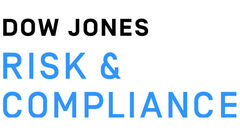
The increasing importance of trade compliance in Asia Pacific
What are the implications of a changing trade compliance landscape and dynamic geopolitical environment for companies in Asia Pacific? What’s the best strategy?

What are the implications of a changing trade compliance landscape and dynamic geopolitical environment for companies in Asia Pacific? What’s the best strategy?
Several factors and trends are contributing to the increasing importance of trade compliance for businesses in the Asia Pacific region. A more dynamic geopolitical environment along with increasing trade sanctions and restrictions are having far-reaching implications for trade policies. Experts expect the current geopolitical volatility to persist for years and perhaps for decades, as the underlying issues are complex and not easily resolved.
This includes regional conflicts and wars – such as the war in the Ukraine which prompted unprecedented sanctions against Russia by authorities across the globe. It also encompasses human rights issues – such as around the Xinjiang-Uyghur Autonomous Region in China which prompted the US Uyghur Forced Labor Prevention Act and the corresponding US restricted party list “UFLPA Entity List”.
In addition, trade restrictions also reflect a heightened focus on security risks – such as those emanating from China’s technology companies like Huawei, which is subject to US sanctions. Superiority contests between global and regional players – economically, politically, as well as technologically – are further fueling the situation.
These developments tie in with tougher international requirements to ascertain global supply chain due diligence – aimed at curbing forced labor, child labor, worker exploitation, health and safety, and environmental violations. Legislative examples for these – in effect or proposed, some for individual points others more comprehensively – can also be found in, for example, the EU, UK, Netherlands, Belgium, Germany, and France.
It is a difficult environment to navigate for companies in Asia Pacific, especially but not exclusively, when they operate or form part of complex supply chains and serve markets across continents.
With every new geopolitical development, changes in sanctions and export control regulations are to be expected. In early 2023, for example, in response to the “surveillance balloon incident”, the US accused six Chinese companies of involvement and added them to the US Entity List governed by the US Department of Commerce, Bureau of Industry and Security.
There are many more examples – from Russia and Xinjiang-Uyghur to Myanmar, Sudan, Iran, and Cuba. While certain alignments across jurisdictions can be observed, independent sanctions and export control regimes reflect various differences that complicate compliance efforts especially for businesses that may be affected by more than one jurisdiction.
As the regulatory landscape tightens on a global level, companies in Asia Pacific increasingly recognize the necessity of trade compliance as an essential foundation for global trade success. Countries such as Singapore, Japan, Korea, New Zealand, Malaysia, and the Philippines are leading the effort.
The consequences of violating sanctions and export control regulations include financial penalties and criminal prosecution. Examples from April 2023 alone, as published in the media, include but are not limited to:
The latter case above is also a timely reminder that the CEO or other key executives of a company must bear the repercussions of a transgression, even if they had no prior knowledge of it.
Media reports about regulatory compliance violations also highlight that the consequences of transgressions go far beyond financial penalties and criminal prosecution. Publications of this kind, especially in the mainstream media, can lead to serious reputational damage.
The impact on shareholder value and repercussions from losing customers, partners, potential buyers, and even suppliers who don’t want to be associated with or investigated for potential breaches can be significantly higher than the actual monetary fine. And unlike payment of penalties, reputational damage is not a one-off incident – word gets around and its after-effects can last a very long time, regardless of the severity of punishment.
As due diligence requirements on a global scale continue to increase, all supply chains partners are being scrutinized more closely and more and more companies nowadays also include adverse media checks in their business partner screening processes.

Bans on indirect provisions? PEP List? Adverse Media? Comprehensive security for your transactions with AEB software and extended content from Dow Jones.
One of the strategies that helps companies tap the potential of supply chain optimization including risk mitigation is supply chain diversification. We are witnessing this trend in the Asia Pacific region, with major brands looking beyond China to establish manufacturing facilities in markets such as Vietnam, Thailand, Cambodia, or Malaysia.
Naturally, governments in emerging markets welcome these investments with open arms. Maintaining investor confidence, however, is key and companies need to demonstrate to multinational corporations that they have appropriate internal measures in place to ensure trade compliance.
Such measures are commonly known as internal compliance programs (ICP). Having an effective ICP in place has become a crucial factor for competitiveness in an increasingly complex global trade landscape subject to dynamic regulatory changes. This applies to public and private companies alike – an ICP increases the value of an organization and its potential as a business partner. Governments are supporting the effort to raise awareness for trade compliance by offering more seminars, webinars, and ICP recommendations.
You can learn more about the key elements of an ICP including examples of official guidelines in our article Export controls 101: Internal Compliance programs (ICP)
And you can find useful guidance with a sample ICP for a fictional company in our article Sample Internal Compliance Program: an ICP for Juice GmbH
Components of internal compliance programs range from management commitment, training, and written policies to self-audits, record-keeping, and managing change. As part of an ICP, software automation is considered an essential tool for ensuring legal compliance without slowing down business processes.
Manual compliance checks are not only cumbersome but also error-prone. Implementing trade compliance software comes with costs, but the return on investment is undeniable – considering savings and benefits from accelerated processes, replaced manual efforts, and risk mitigation.
Trade compliance solutions automatically screen applicable records against the latest sanctions lists and perform export control checks for relevant jurisdictions. These checks take place in the background of business transactions from offer to delivery – providing revisions-safe archiving of results that is readily at hand for audits.
Businesses in the Asia Pacific region and beyond that are looking to attract investments or are the targets of acquisitions stand higher chances if they have a software-supported internal compliance program in place. A company that invests in or acquires an organization can face liabilities even if a transgression has occurred before the deal.
Penalties for compliance violations can vary depending not only on the scale of a transgression but also in view of the measures a company has put in place to avoid it. It is also far better to identify problems and violations before the authorities do so – voluntary self-disclosures and demonstrating existing measures and tools to prevent future breaches can often result in reduced penalties.
AEB's Trade Compliance Management software solutions make it possible to automate and seamlessly document all export control steps, greatly minimizing the risk of criminal violations of foreign trade laws and regulations. Including screening your business partners, running export control checks across jurisdictions, managing licences, and keeping tabs on risks across your organization.
As with almost any business decision, it is crucial to analyze a company's level of risk exposure and determine the cost-benefit ratio before investing in trade compliance software. There is no one-size-fits-all solution. Which processes should be automated and in which way is an individual consideration that depends on who a company is trading with, which countries it ships to, the type of products they deal with, and what their goods are used for.
Either way, however, the benefits of automating trade compliance checks distinctly outweigh the costs – bearing in mind process savings, reduced risks from penalties and reputational damages, and the increase in competitiveness and business value. Any CEO or CFO running the numbers would ask "Where do I sign?”.
Automating trade compliance is not just something for the ‘bigger companies’ to consider. In an increasingly geopolitically turbulent environment, it is a priority for smaller companies, as well. The law will not differentiate between small or big companies – only by severity of the breach and amounts involved.
Whether big or small, with sophisticated IT landscapes or straightforward systems, for limited sanctions list screening or complex export control processes – the right trade compliance solution partner will make a great difference for any business and its future growth. It will also empower the risk manager or compliance manager of an organization, allowing them to shed heavy manual workloads to focus on more strategic value-adding contributions to the business.
The right solution for automated trade compliance management will deliver peace of mind – to a company’s management, its shareholders, partners, customers, and prospects. All parties can rest assured that their transactions, investments, products, or engagements with the company will be safeguarded.
Don’t take any risks and protect your business – talk to an AEB trade compliance solutions expert now.